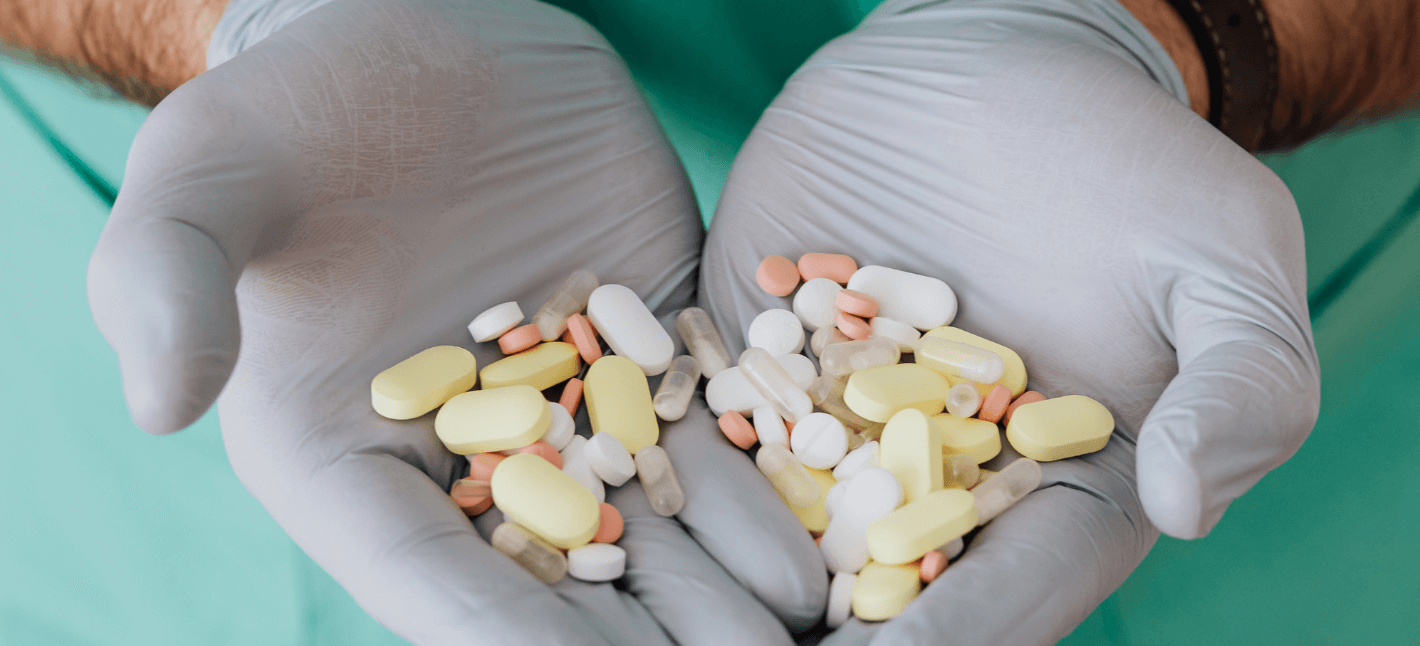Lately, global pharmaceuticals have been through more strains and demands than ever in modern times. The recent pandemic, COVID-19, also explained the effect of sudden demand change in the pharmaceutical supply chain. That change in demand led to global shortage because of supply chain inconsistencies. Here we cover how IoT can help the pharmaceutical supply chance to advance.
How can IoT be used in the supply chain?
Different industries have used the Internet of Things (IoT) per their goals and use cases. For example, ioT for pharmaceutical supply chains can serve a similar role as any other supply chain. Here are some ways IoT can help supply chains in pharmaceuticals:
- Improved drug discovery:
Drug discovery is the pharmaceutical supply chain’s first and most tricky part. Any new medicine has to pass through several steps of testing, monitoring, feedback, improvements, and compliance to reach the target audience.
IoT wearable devices can help ease this process by checking the tester’s health during clinical trials, pushing the progress in the right direction.
- IoT supply-chain traceability:
Every step of the supply chain has a unique set of procedures for pharmaceuticals. In that case, IoT can share insights about which action is taking longer than usual and if there is room for improvement. In addition, traceability can help pharmaceutical manufacturers to look after their facilities and optimize them.
- Smart inventories for pharmaceutical industries:
Inventory management is an ideal application of IoT in any industry. IoT can complement inventory operations such as logging materials, checking stock availability, and notifying needs for new orders—all with higher precision, speed, and scalability.
- IoT & AI Demand Forecasting:
IoT & Artificial Intelligence can do wonders together. While one can govern data and share outputs, the other can help analyze the data and do quantitative decision-making. For example, they can forecast growing trends and upcoming demands for a particular drug so that pharmaceuticals can address them.
- Pharmaceutical regulations with IoT:
Pharmaceuticals have higher compliance and regulations to follow and address in their everyday activities. However, documenting each step to comply takes a lot of effort, time, and money. IoT can automate that part and ensure pharma manufacturers always adhere precisely to regulations.

Which pharmaceutical companies use IoT in the supply chain?
Here are some of the notable mentions of pharma companies using IoT for pharmaceutical manufacturing and supply chain:
- Pfizer
The pharmaceutical industry leader, Pfizer, has chosen to use IoT sensors for supply chain monitoring to verify the environmental conditions of vaccines during COVID-19 by sensing real-time temperature during logistics. This allowed them to maximize the efficiency of their supply chain transporting pharmaceuticals.
- Merck
Merck has introduced a novel cloud program named BrightLab that leverages IoT to help with research & developments in the pharma industry. This program allows researchers with inventory and instrument management for higher efficiency during supply chain management.
- Novartis
IoT can help monitor the performance and conditions of the equipment used during the drug manufacturing process. Novartis has tapped into that use case of IoT with AI for predictive maintenance and to reduce any possible downtime in the supply chain.
- GlaxoSmithKline
GlaxoSmithKline has also used IoT to monitor the environment in their supply chain warehouses to ensure that drugs are preserved in the right conditions through temperature and humidity sensors. This allows them to be relentless in their drug manufacturing process as they do not need to worry about the ambient atmosphere.
What is the role of IoT in pharma manufacturing and distribution?
The growth of technology like IoT-enabled devices, 5G, and AI has pushed forward different industries to a different extent. However, the COVID-19 pandemic has further pushed pharma manufacturing to a stage where they can operate on minimal human assistance more efficiently than ever.
The role of IoT in the future of pharma industry manufacturing and distribution will remain the same, where it will help companies make the most of their capacities and meet public demands along the way.
How to improve the supply chain with IoT?
In conclusion, IoT has a significant role in the pharmaceutical supply chain. From improved drug discovery to smart inventories, IoT can help companies optimize their operations, reduce downtime, and ensure regulatory compliance. The examples of Pfizer, Merck, Novartis, and GlaxoSmithKline show that industry leaders already use IoT to improve their supply chain management.
With the growth of technology like IoT-enabled devices, 5G, and AI, the pharma industry can operate with minimal human assistance, ensuring maximum efficiency. The COVID-19 pandemic has further highlighted the need for a reliable and efficient pharmaceutical supply chain. IoT can play a vital role in meeting public demands and ensuring timely access to life-saving medications.
At Freeeway AG, we offer IoT SIM connectivity solutions to help businesses fight to improve the pharmaceutical supply chain with seamless IoT connectivity. Contact us today to learn how we can partner with you to optimize your pharmaceutical supply chain with IoT technology.
Contact Freeeway AG today to learn more about our IoT SIM connectivity solutions and how we can partner with you to optimize your pharmaceutical supply chain with IoT technology. Let’s work together to ensure reliable and efficient access to life-saving medications.
Contact us to get free test IoT SIM cards for your use case
Your form entry has been saved and a unique link has been created which you can access to resume this form.
Enter your email address to receive the link via email. Alternatively, you can copy and save the link below.
Please note, this link should not be shared and will expire in 30 days, afterwards your form entry will be deleted.




